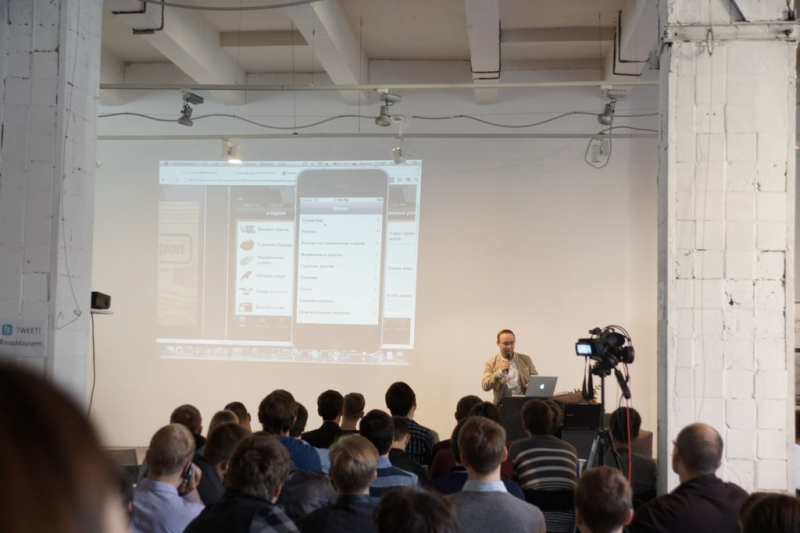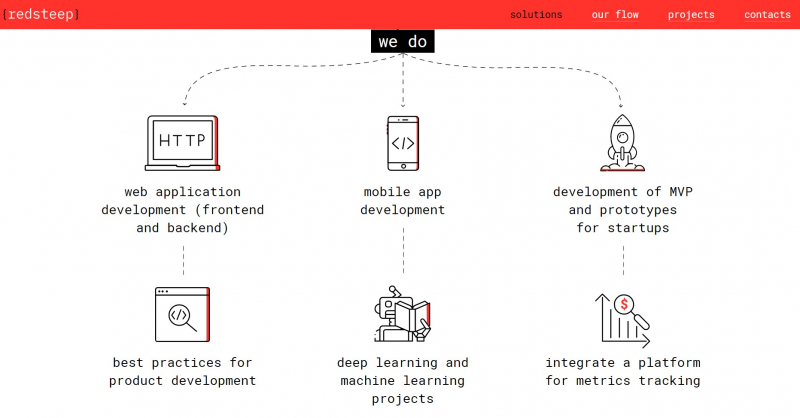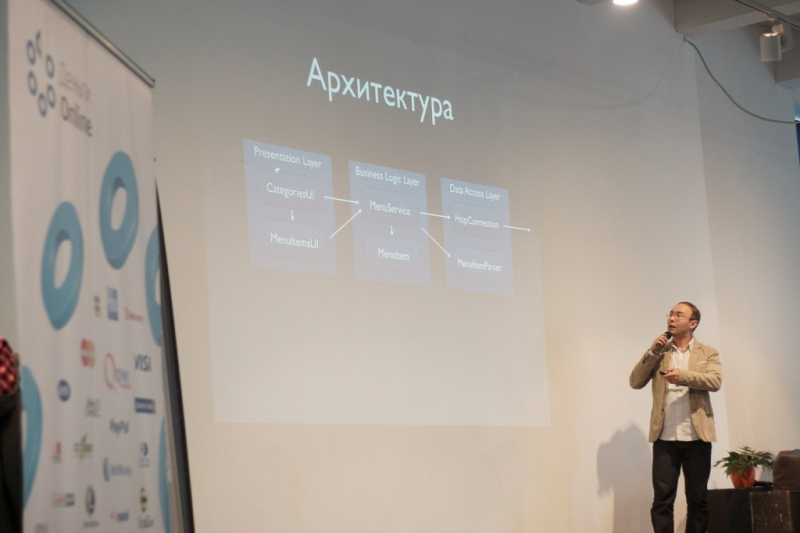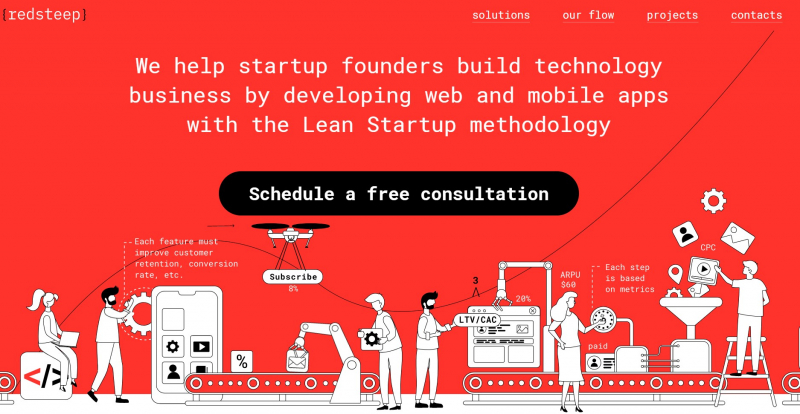Stanislav Krasnoyarov graduated from what is now the School of Computer Technologies and Control and got a degree in systems engineering in 2005. As a student, he was fortunate to receive a job offer from the company of renowned IT entrepreneurs Ratmir Timashev and Andrei Baronov, and later – to work at the Russian branches of several international companies.
Now, Stanislav Krasnoyarov is running his own business – a small company called Redsteep that has 10 employees and focuses exclusively on international startups.
On studying at ITMO and lifelong education
I was in my third grade when I saw Atari gaming computers and ever since I had wanted to become a programmer. Well, I also had the urge to become a musician in the ninth grade but after meeting a few of them, I realized that it was not for me. Then, I got my own ZX Spectrum and programmed a bit in Basic. There were no books or online courses at that time, so I had to sort out the language syntax by trial and error.

When I was in high school, we had a visit from an admissions committee that told us about various tuition-free programs at universities, including ITMO University. I passed the exams well and my scores allowed me to study in St. Petersburg.
I am from a small town in the Tyumen region, so I had very high expectations for the city’s university. I thought that everything would be at the highest level, I would study with students from the best schools in Russia, and I finally would not be the smartest one in the class.
In fact, that's not quite what happened. My fellow students had little interest in their studies and career: out of one hundred students, only ten eventually became actual programmers. I found the studies boring, especially when there were online lectures from MIT and Berkley and I saw that it took them just one semester to learn how to rewrite the Linux kernel scheduler. Clearly, it is extremely difficult (my entire group would fail and even I wouldn't have got "good" for that course) but still, I expected something similar.

Anyway, I graduated from university, received my degree, and still continue to take various courses as there are a lot of them online. I am fond of the idea of lifelong education. In 2013, I took courses on machine learning, statistics, and algorithms on Coursera and Stepik. Then I took a course on neural networks because I wanted to develop my company in this field – we completed one such order, but it didn't go any further.
Then I got into business education, namely, I started to learn more about marketing and sales – it is a whole new world to me. Recently, I got carried away with project management: everything related to CustDev, unit economics, launch, and startup development strategies. In fact, there are more courses I would like to take than the time I have to study.
On starting a career and your own business
I already had a full-time job in my second year of studies. Actually, when I was looking for a job I did not know much about the market, but I got lucky with my first company. It was Aelita Software by Ratmir Timashev and Andrei Baronov – now, we would call it a startup but back then there were no such terms. In 2004, they sold the business to their main competitors – American Quest Software, and for some time I continued to work in their subsidiary. I went from a tester to a programmer and it gave me more knowledge and experience than I could get at the university. Then I worked at BCC (Business Computer Center) – it was a purely Russian company with Russian management – and I didn't like it at all. And then there were two wonderful years at OpenWay, which develops bank card processing systems. This company had its headquarters in Belgium and its management was in St. Petersburg.
I started freelancing three years before founding my own company and tried to combine it with my main job. Then the first iPhone came out, and I was interested in learning how to write programs for it. So my friends who were still students and I sometimes met in the evenings and tried to figure out how everything works there. Then we had an order for porting the game from Flash to the iPhone and we managed to do it in six months. We took another similar order but it turned out to be a complete failure. We thought that we would be able to complete this project also in six months, but in the end, it took more than two and a half years – that is, I miscalculated the deadline by a factor of five.

However, when we finally completed this project, for some reason we got a new one. That is when I decided to quit and took one of my colleagues with me. The rest of my employees were recruited during the eight years of the company's development.
Basically, I had always wanted to run a business, ever since I was in school. And as soon as I got the chance, I jumped at it – quit my full-time job and got a new one but for myself. It would have been foolish of me to let it slip by. I wanted to be my own boss. It was sort of a challenge to learn whether I could handle it or not. For the first two or three years, I had problems with money but now everything is going great.
On the company and work with international customers
Our company is quite small, we only have ten employees. We work with customers from all over the world, develop mobile and web apps, and come up with various solutions for process automation. It is more interesting for us to work with startups that already have revenue because we are not only good at development but also a little at product management. That is, we do not just create systems, but also improve certain business indicators – and this is clearly seen in specific numbers such as increasing employee productivity, revenue, etc.
Let’s say there is a large accounting company that employs a thousand people. It takes them ten hours to prepare a monthly report. Then, we offer them our services and together with the employees of this company develop the software that allows them to make a report in just eight hours. That is, before us, an accountant could work with ten clients at the same time, and with our system – with 15. Accordingly, the amount of revenue per employee grows by one and a half times. Another good example is the Hopper HQ project, which we made from scratch and are still developing now. This is an Instagram post planner that allows SMM specialists to save a lot of time and do their job much more efficiently (especially when dealing with several accounts at the same time).

We are focused exclusively on the international market: I see no reason to sell services in Russia if I can sell them abroad. It's just more pleasant for me to work with international customers because they have a different communication culture. They have no trust issues, and there is no need to spend hours trying to prove who you are. They initially believe that you are a specialist. So the main thing is to maintain this level of professionalism. And in Russia, we waste a lot of time and effort to convince customers to trust us.
On entrepreneurial skills and delegation
Of course, when you work for yourself, you have much more freedom. You always have a choice: to work longer and earn more money or to work less and have to tighten your belt for a month or so. For the first six years, I had to work harder than ever before.

Now I have a team, and I try not to get involved in the work on projects, even if I am interested. So I have more free time and I can leave for a month, turn off my phone and be sure that everything will be fine without me. It is a matter of well-built processes and trust in the team. However, for a long time, it was difficult for me to get myself out of projects – here, coaching and psychology came to my rescue. I remember the first time my team started communicating with a client without me, I exhaled and thought to myself, “Why didn't I do this before?”.
I always struggle to make myself do what is important, and not what I am drawn to. When our company was small, it was impossible to pull me out of some projects. I could spend hours programming, but that's not what I should be doing. I have to do marketing, sales, and networking because in order to delegate, you first need to understand how it's done. I can't just hire a marketing specialist who will come into my business and immediately figure out how to sell my product and who is its target audience, and will do everything for me – unfortunately, it does not work this way. At least I don’t know such cases.

Of course, a marketing specialist will do better at playing with creative elements and setting up an ad campaign. But no one will understand who our target audience is, what their needs are, what is important to them, and what their selection criteria are – and I'm not very good at it yet.
Have I taken any courses? Yes, I have. Did they help me? Not so much. It is not that simple. Just courses are not enough, you need to earn the trust of potential buyers. It is a slow process of making connections and building relationships.
On self-realization and return to employment

I do not think that I fully fulfilled myself and have done everything I wanted. I already have a whole lot of new goals. Now my main challenge is to stop seeing the sales process as random and sporadic and start to understand how it happens. It's an endless process: there is always room for improvement and challenges follow one another. It is a difficult yet exciting path.
Entrepreneurship helps you develop as a person as much as possible because the amount of knowledge that you need to acquire and master is simply huge. I do not mean the volume of professional skills: you do not need to understand everything better than your employees, on the contrary, the more qualified your employees are, the calmer it makes you. Sometimes I even regret that I am a programmer, because I understand the code and see where my employees are messing up. If I didn’t understand it, I’d care less and would not interfere when it’s not necessary.
But an entrepreneur must know the basics of marketing and sales, understand how to build processes, understand finance, and be able to build relationships with people. You cannot be a successful entrepreneur without knowing the basics and it is a huge room for growth. And when you are a hired employee, then there are no such benefits from your own growth and, accordingly, the pressure is less.

Now I would not work as a programmer, because I am much more useful as a leader – a person who can bring the project to its successful end. If someone showed me a really cool project, said that I was exactly the person they needed, described how much money I could bring to the company – and how much I could get – and at the same time I would see an opportunity to grow professionally, then, of course, I would be interested. But so far I received no such offers.
But in general, no one can promise anything. Who knows, maybe tomorrow all my customers will run away and I will have to become an employee again. I'm proud but not stupid.
The most important thing is to do what you like and what will be useful for other people. Whether it is programming, entrepreneurship, or something else, it does not matter.





